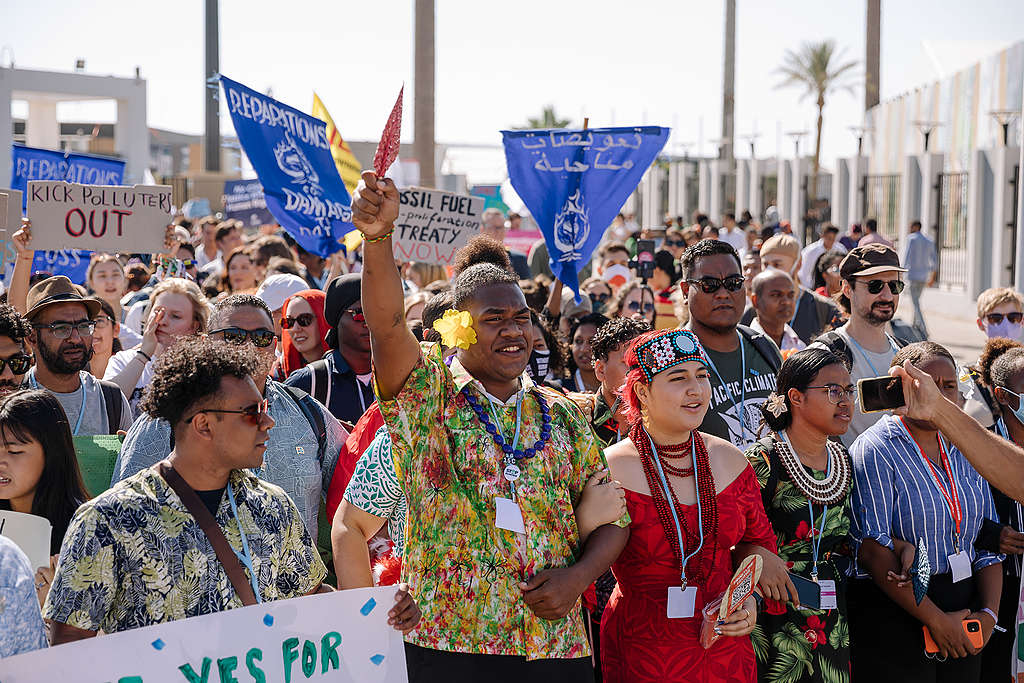As the second week of COP27 begins and the climate talks become critical, let’s check in on what happened week one at COP27 and the action that needs to happen now.
It was a frustrating first week in Sharm el-Sheikh. Quibbling over money, who is actually responsible for paying up (spoiler: we’re still waiting for those who are to acknowledge it) and unusually long discussions only succeeded in putting both people and planet on the sidelines. As civil society on the ground in Egypt braces for a challenging second week, ministers arrive for final negotiations and finalisation of the final text, here’s the better, the bad and the blah, blah, blah from week one.
First the good:
Loss and Damage was officially added to the agenda and the biggest polluting countries can no longer avoid talking about it
The blatant attempt of rich countries to push this item off the COP27 table right from the beginning gave a sobering hint of the delay and diversion tactics that can be anticipated ahead but Loss & Damage on the agenda meant governments can no longer avoid the topic, and are now under growing pressure to pay their fair share for a crisis they are most responsible for causing.
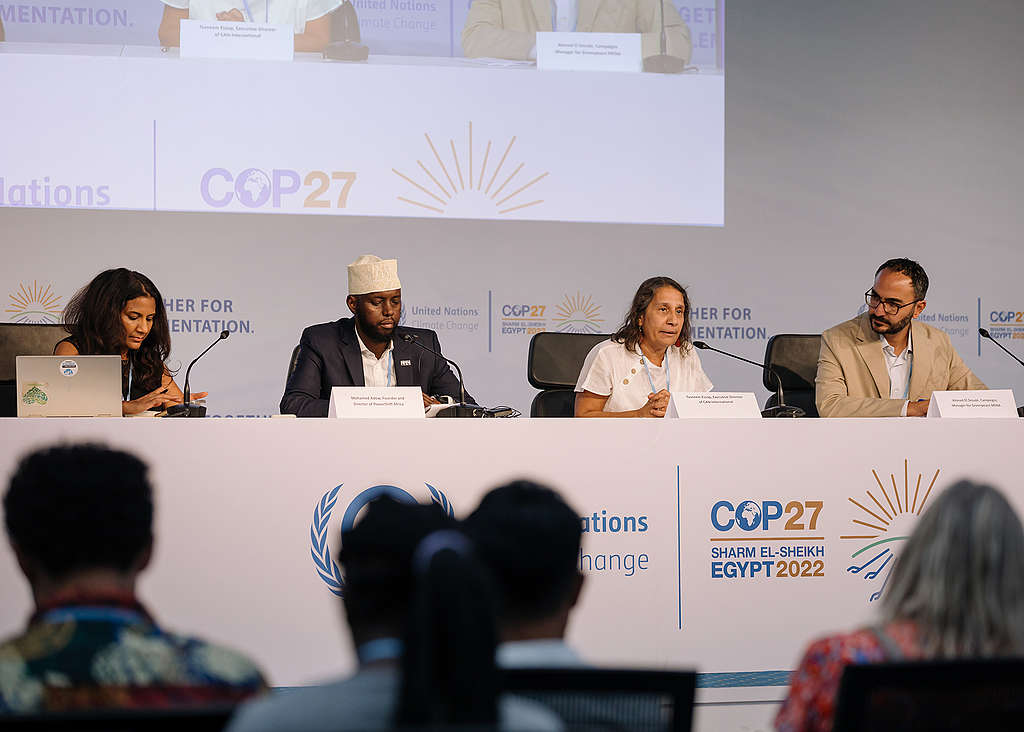
France declared support for a ban on deep sea mining
By calling for an outright ban, France joined the growing number of countries opposed to deep sea mining and calling for a stop to the destructive activity before it starts, leading the way for more ambitious positions from governments at the International Seabed Authority.
A call for a fossil fuel phase out to be added to the main COP27 main text
More and more countries are now calling and declaring support for a fossil fuel phase out to be added to the COP27 main political decision of this climate conference. Doing so would not only mean actually getting to the root of the problem but also be clear progress from last year at COP26.
The UN Expert Group on Net Zero released its recommendations, affirming what has been known for a long time
Full stop, Net Zero claims are incompatible with fossil fuels and deforestation. The planet does not have time for debate and consideration about false solutions. Calling out and taking false solutions off the table for good will be instrumental in delivering climate justice.
Civil society made their voice heard
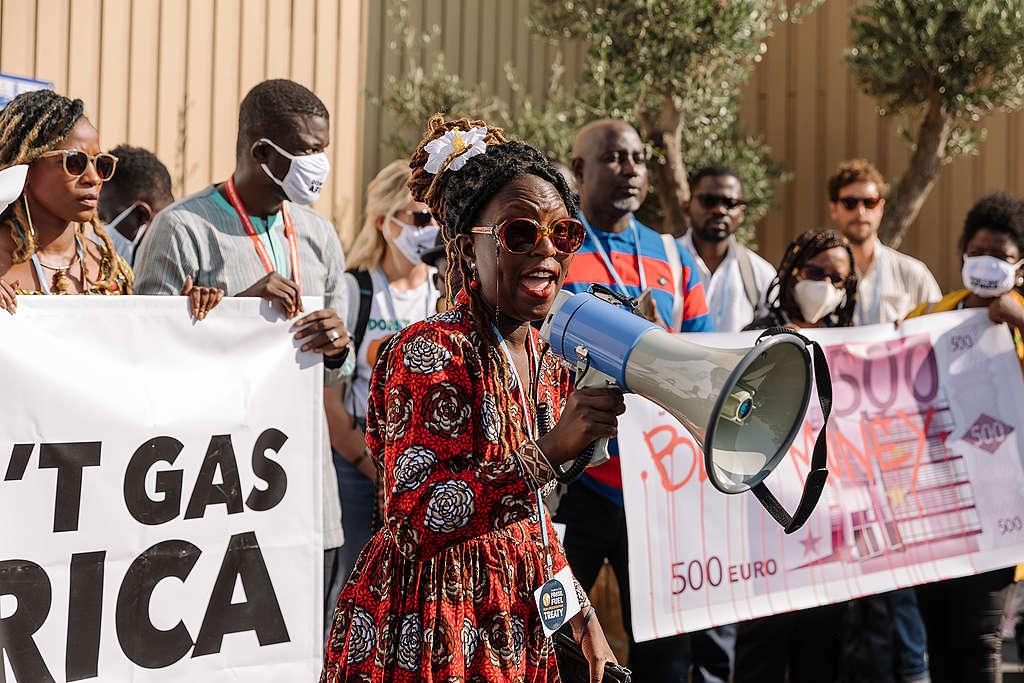
Unable to take the streets of Sharm el-Sheikh, and navigating tight guidelines for protest, civil society, led by youth, Indigenous Leaders and those most affected by the climate crisis got creative in making impactful spaces within and around the UN venue. After a full week of activities, hundreds of people marched on the Global Day of Action, inside the UN venue as negotiations stumbled, to make clear that civil society will not accept the greed of polluters and lack of will from leaders, demanding more ambition in the climate negotiations.
Now the not so good:
A study published this week revealed that over 600 fossil fuel lobbyists were granted access to the COP27 climate talks – 25% more than last year at COP26. Any number of fossil fuel advocates is an unacceptable amount and if the UN is serious about delivering any real climate action, they must kick out the big polluters. As a delegate from Africa said, “If you want to address malaria, you don’t invite the mosquitoes.”
Governments signed an agreement to green light another decade of forest destruction, following years of failed promises on this exact issue. Tangible policies to actually deliver on promises of zero deforestation and protection of Indigenous Rights continue lacking, and major question marks surrounding the new funding that has been pledged remain.
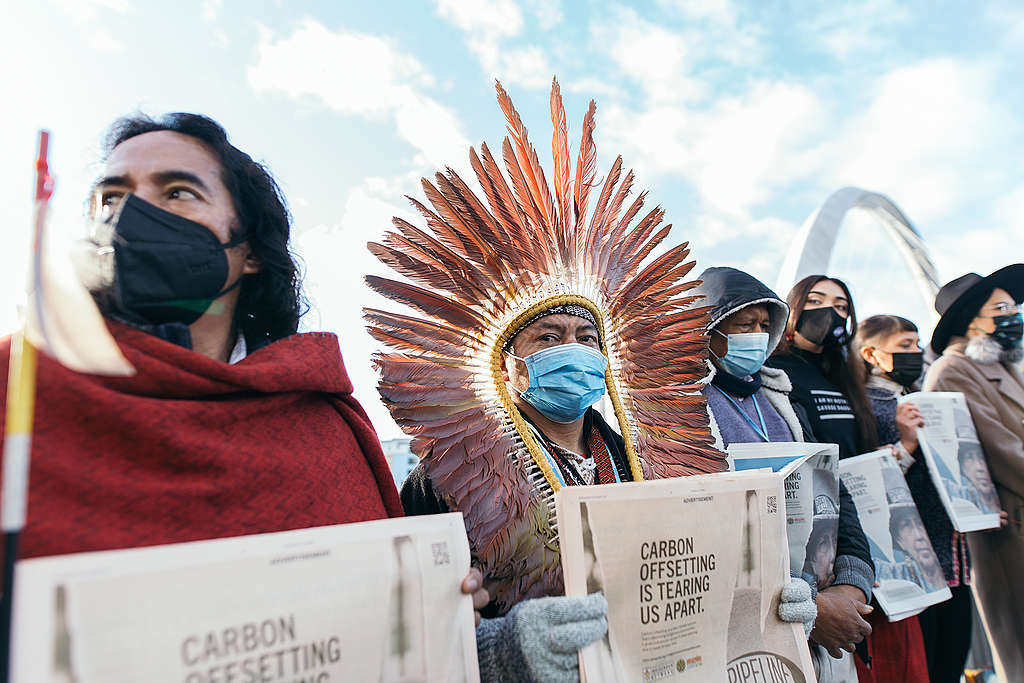
Feeble references from world leaders to adequate funding were plentiful while the fulfilment of the decade old promise of $100 billion a year from richer nations to less developed countries has yet to materialise. Current negotiations meanwhile don’t give enough detail to say with any confidence that the new goal will be delivered. Every day that they delay will be measured in destroyed lives, livelihoods, ecosystems and economies.
And the blah, blah, blah…?
Negotiations will now begin on the text of the official agreement that will come out of Sharm el-Sheikh. There is a lot still to play for, given mounting political pressure from countries and communities most affected by the climate crisis. This is the progress we’re pushing for progress this upcoming week:
Establishment of a Loss and Damage Finance Facility
The richest, historically most polluting countries are blocking progress at COP27 on establishing the Loss and Damage finance facility that is urgently needed by developing countries. This is still with funding arrangements for responding to Loss and Damage being an agreed agenda item. Funding is needed to even begin to start responding to the increasingly destructive and more frequent climate impacts. Countries blocking these advances will have to answer as to why they were comfortable with further devastation.
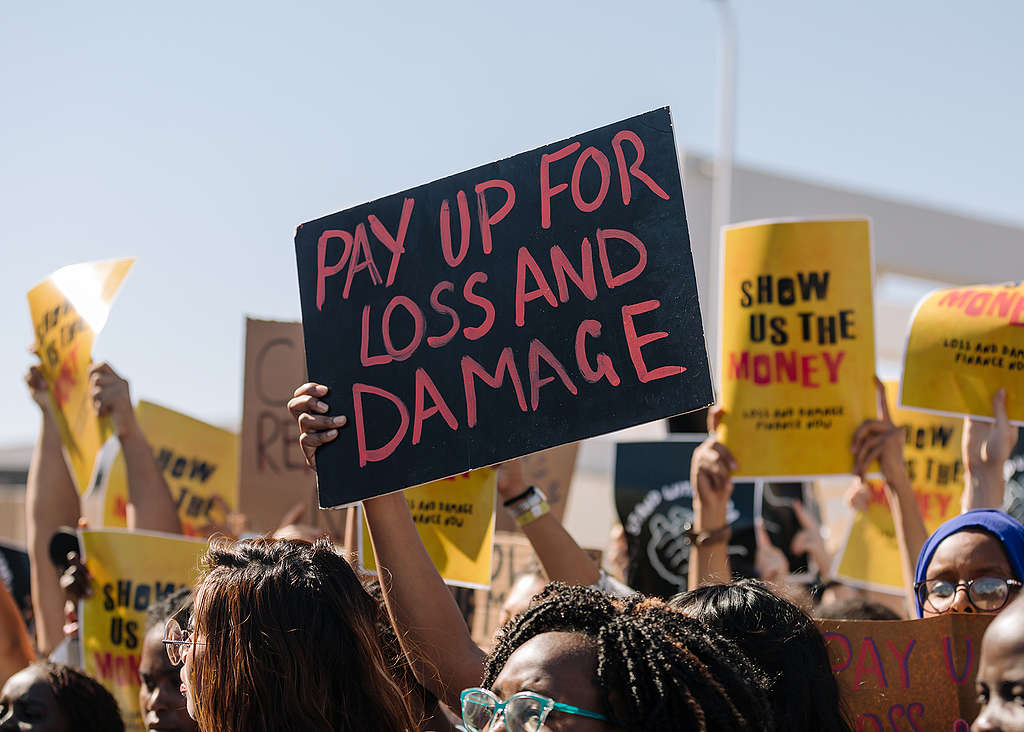
Fossil fuels: phase out, defund, and pursue a just transition to renewables
The final COP27 decision text must follow through on calls made by countries this week and name fossil fuels as the main culprits of the climate emergency, and commit to adequate climate financing to support less developed nations. Anything less is climate injustice.
Finance: deliver on the $100bn a year promise – and more
Wealthier countries need to come forward at COP27 with funding and a robust plan that shows how the $100bn will be met along with additional funding. It’s really that simple.
Recognise the role of nature in climate mitigation, adaptation, as a cultural and spiritual symbol and as a home to diverse flora and fauna
We’re also in a biodiversity crisis and the outcomes that come out of COP27 will influence the discussions and specific targets under the framework at the upcoming Biodiversity COP15 in December.
——-
Let’s be clear, the goal has not changed: for COP27 to still be a success, there’s a lot of work to do. But lives are on the line out here. This week is a test for humanity and a time for action.
